Terry, needle-shaped, lush and thin, like the fan of a court beauty, asters belong to the flowers that are the second most popular and numerous varieties after roses.
Growing luxurious asters, which decorate the garden all summer and autumn, often begins with caring for their seedlings. First of all, annual varieties are propagated by seeds, while for perennials, vegetative options are preferable - dividing the root or bush.
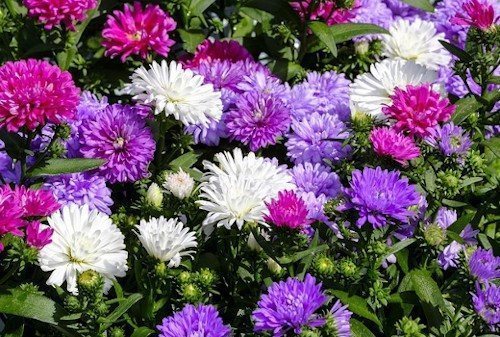
Suitable timing
Aster makes you wait a long time for its flowering: early varieties open their buds on average 90 days after sowing the seeds, medium varieties - after 110 days, late varieties - after 130.
For the middle zone and the Moscow region, it is recommended to sow seedlings in mid-March; for the Urals and Siberia, the end of March and the beginning of April are more suitable; for the southern regions, the beginning of March is optimal.
If we talk about the Lunar calendar, then in March the most favorable numbers are 2, 3, 27, 28, 30 and 31, in April - 2, 6, 7, 24, 28 and 29.
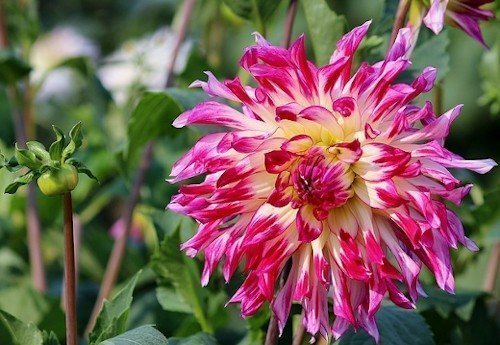
Processing of planting material
Last year's aster seeds have the highest germination rate (50-80%). They also have relatively fragile shells and contain a minimum of inhibitors, which means they do not require painstaking stratification methods.
The only thing that is recommended is soaking for 6-10 hours in Epin solution (prepared according to the manufacturer’s instructions).This treatment not only accelerates the mass emergence of seedlings, but also promotes the formation of more inflorescences on each plant, and even improves the ability of asters to maintain a fresh appearance after cutting.
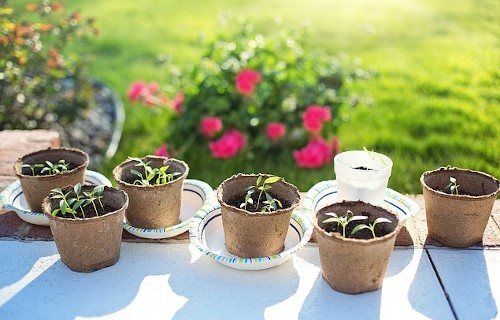
Substrate
Aster is surprisingly undemanding to the composition of the soil, but in order for the flowers to open as magnificently as possible and form bright pigments, the soil must be nutritious, breathable, with an acidity in the range of 6.5-7.5 pH.
You can buy a soil mixture in the store or make it yourself by mixing one part of coarse river sand, peat and garden soil. Ideally, taken from the site where seedlings are planned to be planted in the future.
2 weeks before sowing seeds, it is recommended to disinfect the soil: it is best to use the Fitosporin-M solution, which is not only capable of cleaning the soil from pathogens and pest larvae, but also does not destroy its beneficial microflora.
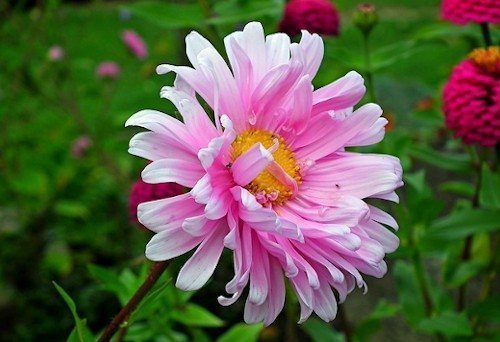
Conditions for development
Aster seeds are not buried - just place them on a slightly moistened substrate at a distance of 3 cm from one another and sprinkle with a thin layer of calcined sifted sand. Then the planting site must be well watered with a spray bottle and covered with plastic film or glass. Any of the materials should be removed 1-2 times a day for ventilation and regular watering of the seeds. Shoots appear in 5-10 days.
The optimal temperature for the development of aster seedlings is +18-20 °C, the duration of daylight hours should be at least 12 hours, and the natural rays of the sun should be diffused.
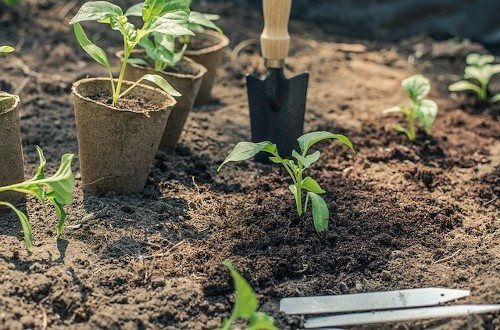
Dive
Picking is carried out as soon as the seedlings acquire 2-3 true leaves. It is not recommended to hesitate, otherwise the seedlings will begin to stretch above the ground and intertwine their roots below it.
The substrate in new planting containers should be similar in composition to the previous one. It needs to be watered well 2-3 hours before transplanting.
They remove the asters, carefully digging them up, then inspect the roots: if some have grown too much or branched out, they can be shortened.
The seedlings are placed in a new container with a slight deepening, leaving about 1 cm between the surface of the soil and the lower leaves.
After 2 weeks, it is advisable to add some kind of root formation stimulator to the asters, like Baikal M or Kornevin.
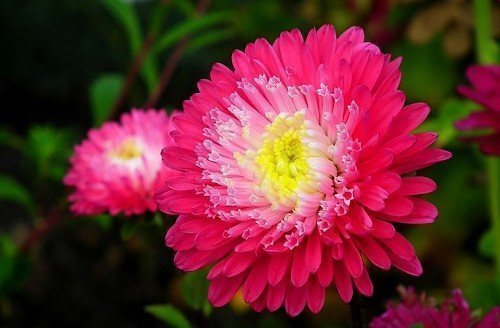
Preparing for planting in the garden
After 1 month from the emergence of seedlings, when the 5th true leaf appears on the seedlings, it is necessary to begin hardening the aster - the difference in temperature and air humidity in the open air may not destroy unprepared young plants, but will definitely worsen their immunity.
Every day for aster during the day, the air temperature in the room is lowered for 10-15 minutes to +10-15 ° C, and after bringing this period to 6 hours, the seedlings are left to spend the night in a cool place.
After exactly 4 weeks of strengthening the health of the plants, they can be moved to open ground, and for this you can choose a cloudy day or evening.
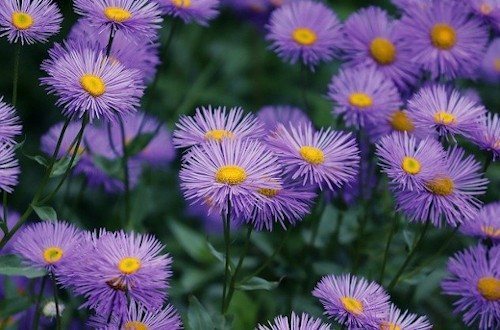
To summarize, we can say that growing asters for seedlings is one of the easiest tasks for a gardener, the key rules of which are pleasantly simple and provide truly magnificent results in the form of a sea of flowering asters in the garden.


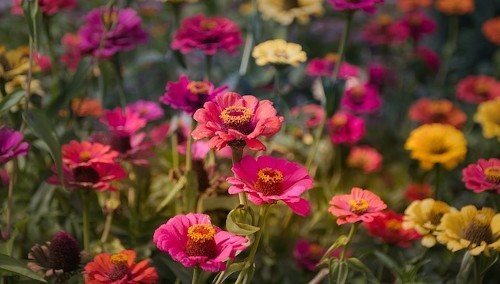
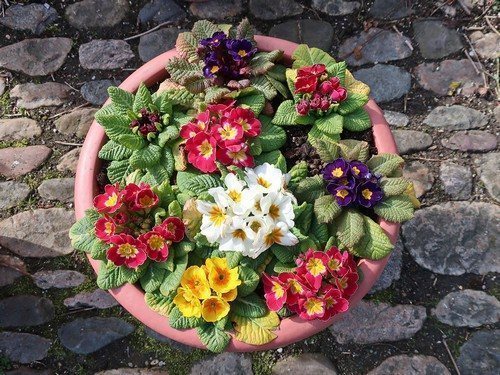
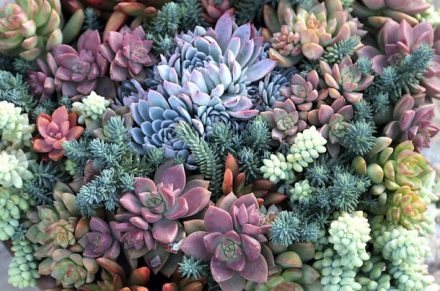
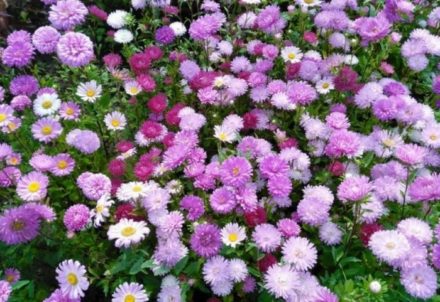
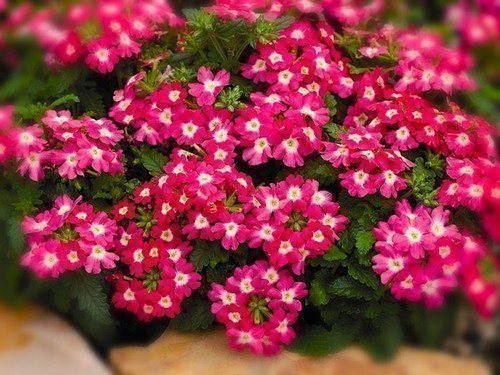
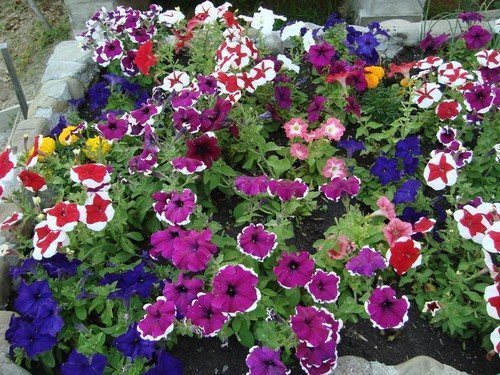
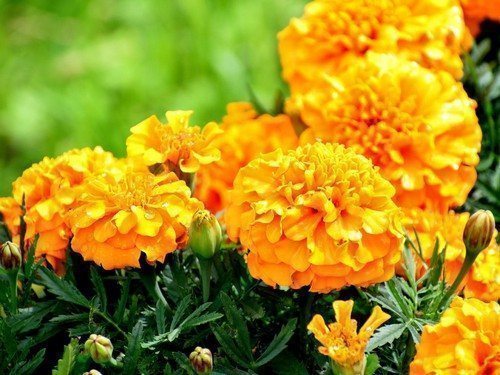
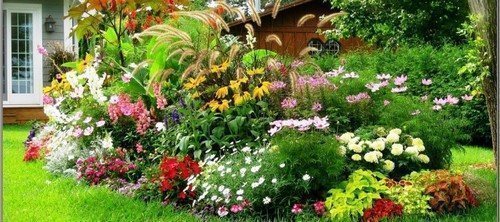
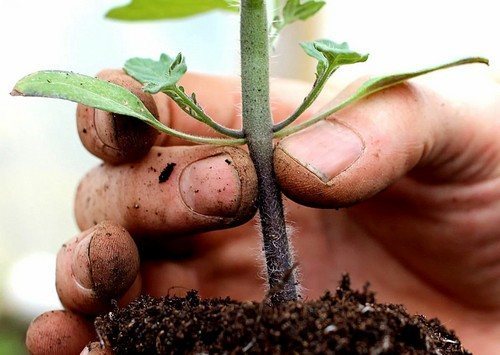
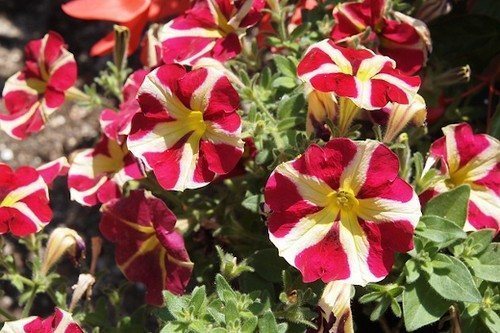
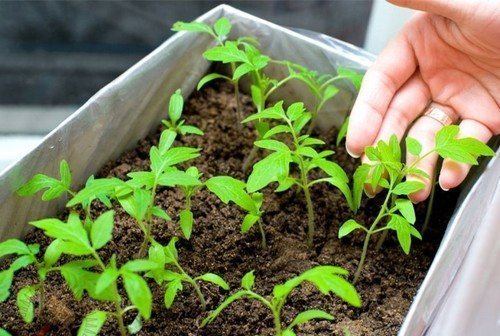
Take some soil, sow aster seeds, and don’t forget to water. I do this every year